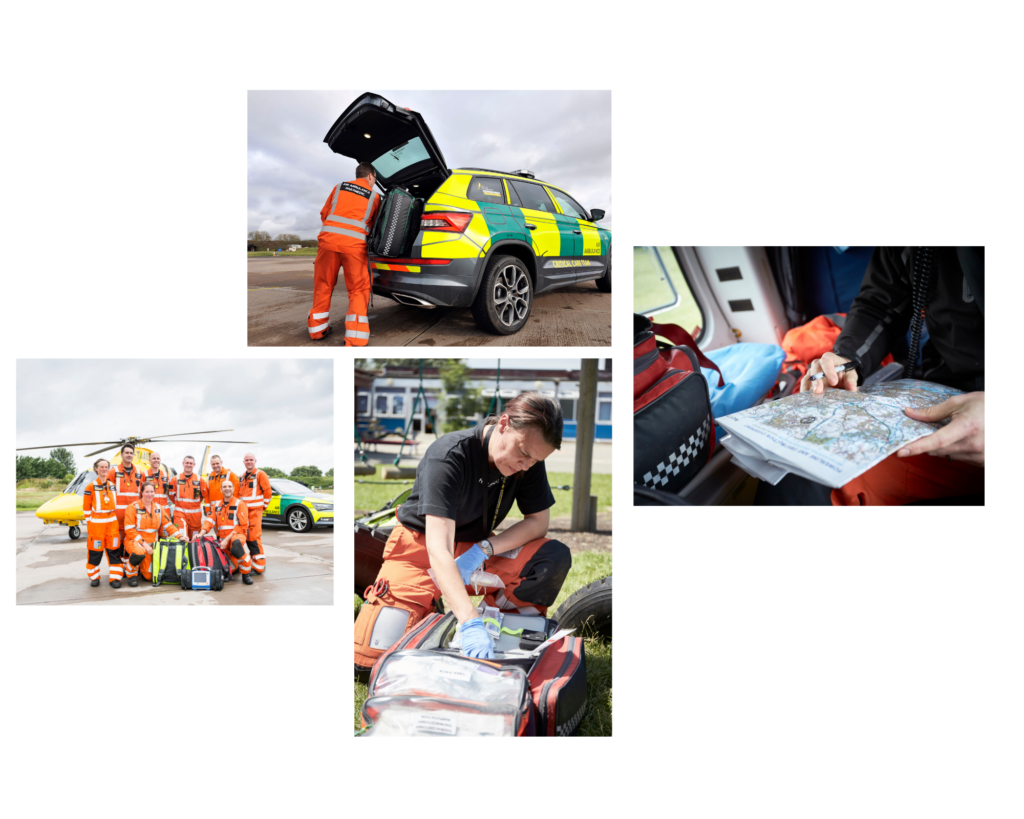News Hub
Your Local Air Ambulance brings critical care to road traffic collisions

Road Safety Week gives everyone the opportunity to reflect on how the safety of our roads impacts all our daily lives.
Attending lifesaving missions across the counties of Warwickshire & Northamptonshire, and Derbyshire, Leicestershire & Rutland, your local air ambulance covers 3,850 square miles – varying from major roads and motorways, to rural roads and country lanes.
With their rapid response by helicopter or critical care car, the crew can be at the scene of a road traffic collision (RTC) within minutes.
When arriving at RTCs, the crew are often faced with challenging situations, which vary in nature. They usually get a bird’s eye view of the scene from the helicopter – where they can assess what hazards are present – as well as anticipating what has happened before they get to the patient’s side.
“Scene safety for everyone is always the priority – if we are at a motorway incident, we have to ensure we have a safe working area with lane closures, etc. On more rural roads, we must ensure the roads are completely closed to create a safe working environment for all the emergency services,” explained Critical Care Paramedic & Base Manager, Karl Bexon.
It’s not just the speed at which the lifesaving service gets to an RTC, but the crew brings an expert level of pre-hospital critical care to the patient – providing vital medical intervention to them sooner.
“Depending on the severity of the patient’s condition, our clinicians will decide on the priority of the interventions required. After the initial patient assessment, injuries will be splinted, pain relief administered – and if the patients are severely injured – they will be anaesthetised at the roadside to secure their airway, and control breathing and circulation. Once stabilised the patients will then be transported to the most suitable hospital for their injuries,” added Karl.
Last year, 33% of mission taskings for your local air ambulance were as a result of an RTC – and even despite months of lockdown – figures this year remain almost unchanged.
Former patient, Nigel Turner, who suffered life-threatening injuries when his car – which was stationary at the time – was hit by a van travelling at 60 miles an hour, supports Road Safety Week when he commented:
“I was lucky that when I was injured in a road traffic collision the speedy response of the local air ambulance made a huge difference to my recovery. The critical care doctor and paramedic arrived at the scene quickly, anaesthetised me, and I was flown to the nearest major trauma hospital for the treatment I needed. If this had not happened things could be very different now.”

For more information on Brake’s Road Safety Week campaign, please click here
